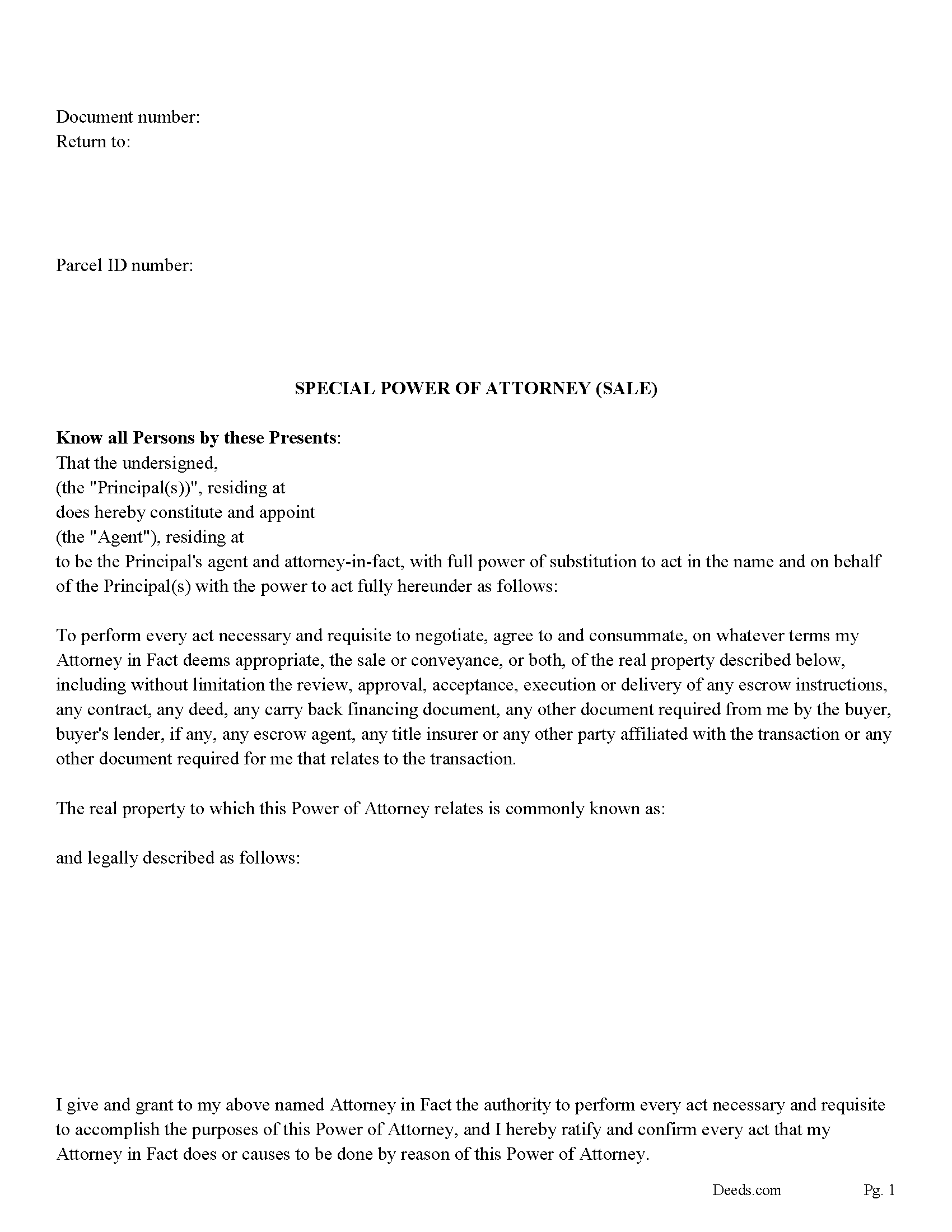Wisconsin Power of Attorney for the Sale of Real Estate Forms

Wisconsin Power of Attorney for the Sale of Real Estate Overview

How to Use This Form
- Select your county from the list on the left
- Download the county-specific form
- Fill in the required information
- Have the document notarized if required
- Record with your county recorder's office
Use this form (Principal) to allow a second party, your Agent, to sell a property on your behalf. Your agent can perform all tasks necessary to sell a specific property located in the State of Wisconsin, in your place and stead as if you were present yourself.
This power of attorney is not affected by any subsequent disability or incapacity of the principal and shall be considered a "Durable Power of Attorney." (ii) shall be governed, as to its validity, terms and enforcement, by those laws of the State of Wisconsin that apply to instruments negotiated, executed, delivered and performed solely within the State of Wisconsin. Terminates upon a date set by the principal.
Agent's Certification Form: Often Third Parties, accepting the power of attorney will require this form. (The following optional form may be used by an agent to certify facts concerning a power of attorney for finances and property.) (Wisconsin revised statute 244.62)
(Wisconsin SPOA-Sale Package includes form, guidelines, and completed example)
Important: County-Specific Forms
Our power of attorney for the sale of real estate forms are specifically formatted for each county in Wisconsin.
After selecting your county, you'll receive forms that meet all local recording requirements, ensuring your documents will be accepted without delays or rejection fees.
How to Use This Form
- Select your county from the list above
- Download the county-specific form
- Fill in the required information
- Have the document notarized if required
- Record with your county recorder's office
Common Uses for Power of Attorney for the Sale of Real Estate
- Transfer property between family members
- Add or remove names from property titles
- Transfer property into or out of trusts
- Correct errors in previously recorded deeds
- Gift property to others